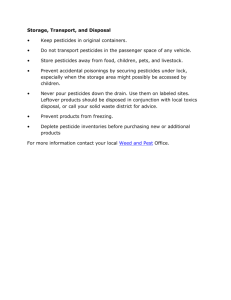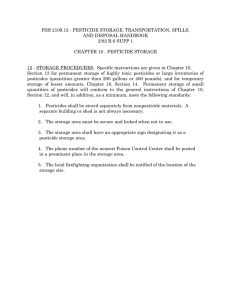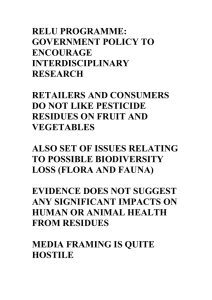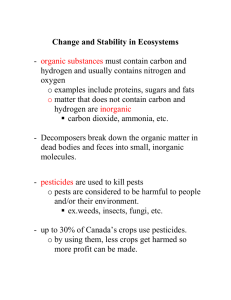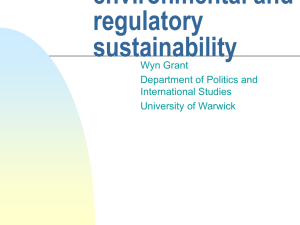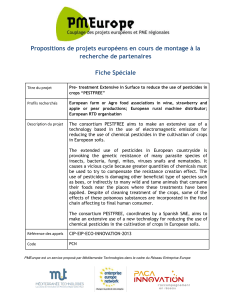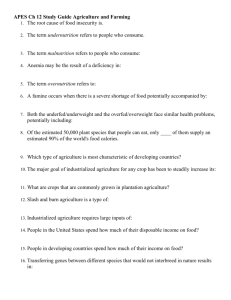COMPLEMENTARITY OF APPROACHES ADOPTED BY TWO TEAMS
advertisement
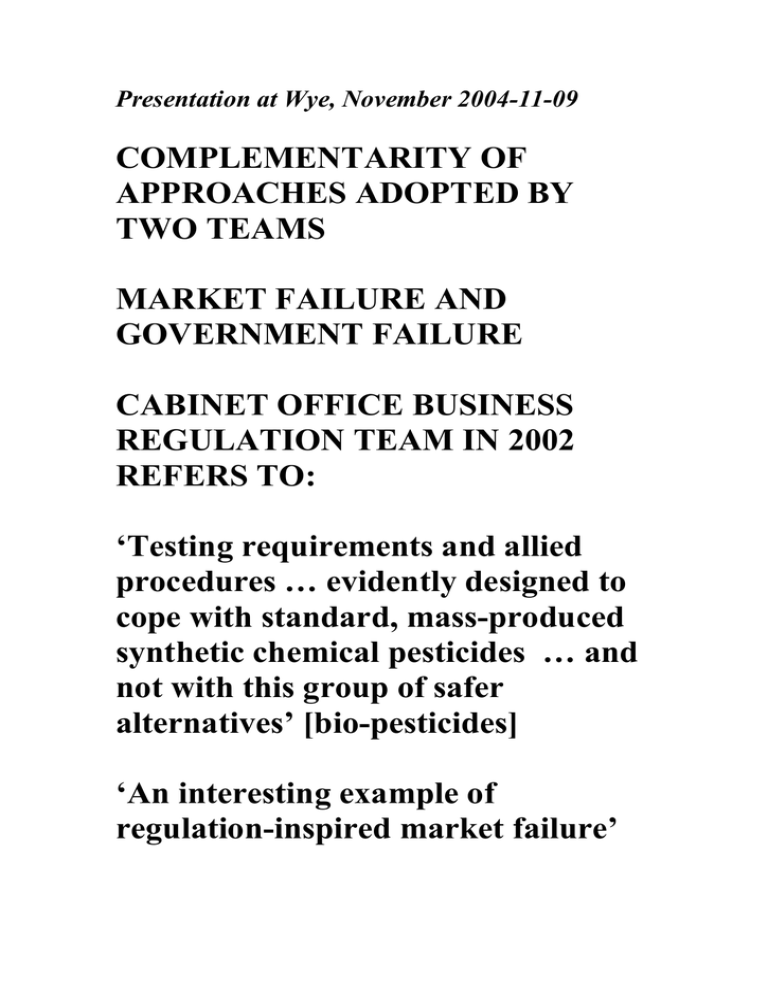
Presentation at Wye, November 2004-11-09 COMPLEMENTARITY OF APPROACHES ADOPTED BY TWO TEAMS MARKET FAILURE AND GOVERNMENT FAILURE CABINET OFFICE BUSINESS REGULATION TEAM IN 2002 REFERS TO: ‘Testing requirements and allied procedures … evidently designed to cope with standard, mass-produced synthetic chemical pesticides … and not with this group of safer alternatives’ [bio-pesticides] ‘An interesting example of regulation-inspired market failure’ PARADIGM OF REGULATORY STATE IN POLITICAL SCIENCE DEVELOPED BY MORAN CORE FEATURES: Displacement of ‘command’ state (‘Keynesian welfare’ state) by regulatory state. Seen in ideal typical terms as progressive Involves more indirect forms of state control (which do not, however, necessarily reduce state power) Replacement of self-regulation which was seen to fail both in terms of economic efficiency and public accountability MORAN SUGGESTS THAT PRESENT FORM OF REGULATORY STATE IS AN IMPERFECT TRANSITION Hood et al – ‘The Government of Risk’ EXPLORE AND COMPARE NINE REGULATORY REGIMES, TWO CONCERNED WITH PESTICIDES Central premise: risk regulation regimes can vary even within the same ‘regulatory state’ Scientific expertise is essential in pesticides but highly contested. Multiple interest groups and substantial media attention High level of organisational complexity in regime because a form of multi-level governance involving EU Also suggest (controversially) that PSD is an example of budget maximisation POLICY COMMUNITY/POLICY NETWORK THEORY WOULD SUGGEST THAT AGROCHEMICALS POLICY COMMUNITY IS HIGHLY DEVELOPED WHEREAS BIOPESTICIDES HAS A WEAK NETWORK POLICY NETWORK THEORY SUGGESTS THAT POLICY NETWORKS ARE GOOD AT MANAGING INCREMENTAL CHANGE, BUT ONLY INNOVATE IN CONDITIONS OF MAJOR CRISIS OR EXOGENOUS SHOCK Identify and explore interactions of policy actors Examine alternative approach of substantial government intervention developed in Denmark As power has flowed down the food chain, see the emergence of a retail led system of governance. What leverage can retailers exert? ONE HAS A SET OF PRODUCTS WHICH APPEAR TO BE: Safe Efficacious Meet consumer demands BUT ARE NOT BEING WIDELY ADOPTED SYSTEMS OF REGULATION CAN HAVE UNINTENDED CONSEQUENCES: Bureaucratic theory suggests that there is a tendency for mechanisms to displace goals, for process to become more important than outcomes Policy instruments are considered in isolation from their wider effects NEED TO LOOK AT COSTS AND BENEFITS OF BIO-PESTICIDES WITHIN A BROAD PERSPECTIVE
